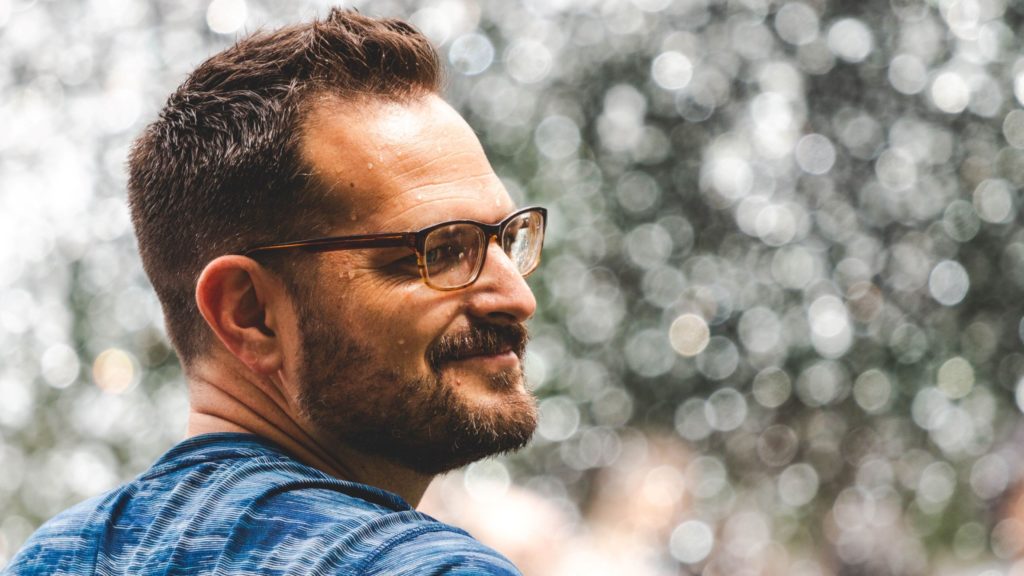Hair loss can be an embarrassing problem. Also known as alopecia, this condition can be devastating to the self-esteem of those suffering from it. That’s why, though hair loss is not life threatening and usually causes no pain, there are so many people looking for treatments like Rogaine to aid hair growth.
Causes of Hair Loss
There are several different potential causes of alopecia, like genetic, medication side effects, life changes and of course aging. We cover some of the more common causes and how to treat hair loss.
Genetics
The most common cause of hair loss is hereditary. Both men and women can receive genes from their parents that cause them to lose their hair as they age. Particularly, men who have relatives on the maternal side of the family with a history of male pattern baldness are at a higher risk. A history of male pattern baldness has been linked to an imbalance of male sex hormones called androgens which are meant to regulate hair growth. When the hair’s growth cycle is weakened, hair follicles produce less strands of hair.
Alopecia Areata and other Medical Conditions
This Alopecia areata is an autoimmune disorder that causes large patches of hair to fall out. This happens when the immune systems begins to attacks hair follicles. There are several other medical conditions that can also cause hair loss, like anemia, thyroid problems, or eating disorders.
Medication Side Effects
Several types of medications can cause your hair to fall out. While most people know chemotherapy can cause hair loss, they may not realize that some antidepressants and high blood pressure medications can also cause hair to fall out. When taking beta blockers to reduce your blood pressure, some medications that have been known to cause hair loss include metoprolol (Lopressor), timolol (Blocadren), and atenolol (Tenormin). It’s always a good idea to be aware of the side effects that can arise when taking medications to treat other health conditions.
Life Changes
Emotional trauma and hormonal shifts in changes like pregnancy and menopause can cause hair loss. In addition, researchers have found that stress can trigger hair loss as it can change the stage of hairs in the growth stage. Stressors have the impact of actually pushing hair follicles into a ‘resting period.’ When this happens, hair becomes thinner and starts to shed.
Medical Conditions
There are several medical conditions that can cause hair loss, like anemia, thyroid problems, or eating disorders.
Aging
This may seem like a no-brainer, but oftentimes hair loss can just be a result of the overall aging process. Unless you are an eternal individual, aging is a natural part of life. For some, this process shows in the hair immediately.
Common Treatments for Alopecia
Conventional Treatment
When it comes to stimulating the regrowth of hair, the main goal of treatment is to obstruct the immune system attack that is causing large patches of hair to fall out. This is frequently done by This condition is frequently treated by treating underlying conditions, over the counter treatments like Rogaine, prescription medications like Finasteride or corticosteroids, laser treatments, or hair transplant surgery. You’re likely to find successful treatments for most types, so don’t give up on learning how to grow hair faster.
Sudden, intense hair loss with no other explanation should be evaluated by a medical professional as it can be indicative of other health problems.
Even if you haven’t been to see a doctor or dermatologist about your hair loss problem, there are over the counter products you can try. We recommend the top rated Pura D’or Go as a hair loss shampoo.
Natural Treatments
Natural treatments for hair loss are others ways you can approach treating alopecia. Some routes you can take to help with hair loss include aroma therapy, stress management, a healthier diet, and acupuncture.
Aromatherapy & Stress Management
Studies have found that aromatherapy may be used to stimulate hair growth. A blend of various essential oils such as thyme, cedarwood, rosemary and lavender can be mixed with carrier oils like jojoba or grapeseed into the scalp everyday for a couple months.
As mentioned earlier, large amounts of stress can force hair follicles into a ‘resting period,’ hindering their stage of growth. Learning ways to manage stress can be beneficial in preventing moderate forms of hair loss. Stress relievers such as yoga, meditation, and spending time outdoors may work for you.
Anti-inflammatory foods
Implementing anti-inflammatory foods into your diet can be very beneficial to increasing hair growth. Legumes such as lentils, peas, and beans contain minerals such as iron and folic acid that are essential for hair growth. In addition, foods that are high in omega-3 fatty acids help in the absorption of vitamins and minerals for hair growth. Salmon, mackerel, and flax seed are some foods that have high amounts of omega-3 fats. Moreover, increasing your intake of probiotics and quercetin – a flavonol found in many fruits and vegetables – are also good ways to help your body accelerate the process of hair growth. You can also consider taking supplements of omega-3 and quercetin if you are looking for other ways to incorporate them into your diet.
Acupuncture
Acupuncture is a kind of alternative medicine where thin needles are inserted into the body to attempt pain relief. However, the process can be used to address a wide range of other health conditions, some of which include hair loss and mental episodes like anxiety, and depression. Acupuncture done on the scalp can reduce inflammation and increase blood circulation to the area by stimulating hair follicles. In addition, the process has the ability to reduce T1 cells which may be attacking hair follicles, causing the hair to fall out.
Hair Loss Shampoo
One of the easiest and least evasive ways to start treating hair loss is shampoo. Results may vary but Pura D’or is the top rated anti-thinning hair loss shampoo on Amazon, with over 9000 4.5 start reviews. It also includes a satisfaction guarantee.


